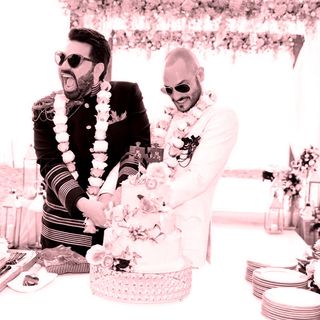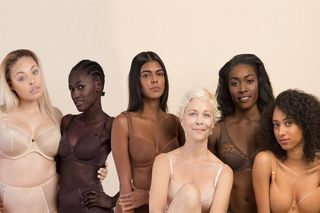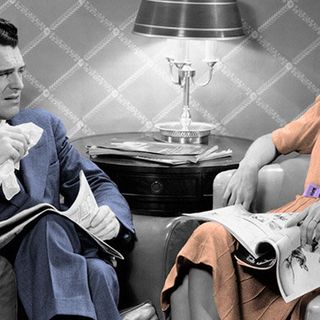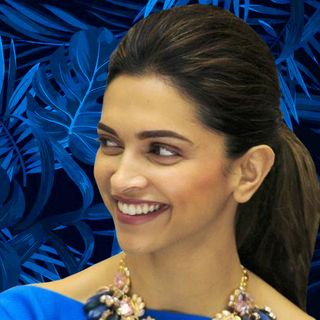
All the Arguments You Need: To Convince People That Some Dating ‘Preferences’ are Discriminatory
An entire group of people can’t be ‘not your type.’

In our All The Arguments You Need series, we take on mindsets standing in the way of progress and rebut them with facts and logic.
About a year and a half ago, a friend’s roommate was talking to me about his love life. I wasn’t particularly interested in the conversation until he said, “Yeah she’s my first Muslim chick. I’ve always wanted to see what it’s like dating a Muslim chick.”
In the brief, record-scratch moment that followed, my brain readied itself for an argument to come. Oddly, the majority of people in the room didn’t find anything offensive in his statement, nor in having a certain ‘preference’ for people (or against people) of a certain race, caste, body type, skin color, or religious identity. If you’ve found yourself in this kind of a situation, or if you’re one who’d argue for the other side, here are a couple of things to consider when people say things like:
“I really love dating people who are [X identity]. That’s not discrimination against them!”
Uh, no. Let’s just clarify this — if you’re interested in someone for the sole reason that they’re from a certain background, have a certain body type, or a certain skin color, you need to reassess your priorities. Inclusive preferences aren’t necessarily bad — people can find curvy women attractive, sure, but if they’re only interested in a person because of that person’s body type, then that’s a problem. Making choices based on a one facet of a person’s identity (and the idea that somehow all people with this facet of identity will be attractive to you), reduces that person to a kind of fetish, where that quality supersedes everything else about them.
If someone has ‘a thing’ for East Asian women, or thinks dusky women are somehow more ‘exotic,’ they’re playing in to a history of colonialist tropes. Desire turns into fetish when the only thing that is attractive about a person is a single identifier, and one they often have no control over. Again, affording people complexity and their humanity is the very least you can do when you’re dating someone. They’re not just the ‘Muslim chick’ that can be checked off a creepy list of ‘types.’
“I’m just not attracted to people who are [X identity]. It’s nothing against them; it’s just a personal preference.”
When someone says this, perhaps it’s a good thought experiment to push them further and ask why they think they aren’t attracted to a certain group of people. I’m willing to bet the answer will be something rooted in a stereotype. There is no way they’ve met every Muslim or every Sindhi in the world, to be able to say they don’t like the entirety of individuals that make up these groups. In that case, they’re making the assumption that this one facet of identity defines every individual within the group, rather than seeing each of them as complex, real human beings.
The rationalization of ‘Oh, I just like who I like’ excuses us from really understanding the way negative stereotypes dehumanize people. All Northeastern women aren’t ‘easy’, all dark-skinned people aren’t uneducated, and all Bengali women don’t ooze sex appeal — there is no implied universalism that works for any group of people. Maintaining a blanket assumption based on race, caste, religion, or skin color is not a personal preference, it’s narrow-mindedness. Instead of seeing a group of people as automatically disqualified from your dating pool, why not take the trouble to introspect what your biases are informed by?
“I’m just naturally into people who are [X identity]. It’s a biological attraction, there’s nothing I can do about it.”
Actually, sociologists state that these categories or ‘preferences’ are socially constructed, and are relative to each of our cultures and histories. Of course, we may individually have preferences, but those are always informed by factors outside of ourselves. Biological impulses don’t exist in a vacuum. Studies show that our attraction to people is based on what is familiar to us, and if we are exposed to a different type of person for long enough, our attraction to them increases as well.
So, if you do come to realize that your biases against certain communities are based on faulty assumptions, you might actually increase your dating pool by being more open to people who may now be extremely attractive to you, just because you’re allowing them to become familiar. The problem only arises when people passively accept internalized prejudices as biological. There is nothing in someone’s DNA that means they can only find TamBrahm men attractive (or unattractive).
“But I’ve never seen anyone of [X identity] who I find attractive.”
A good question to ask is why — what is it about the media we consume that informs our understanding of what is attractive, and what isn’t? In India, entire industries are devoted to capitalizing on European standards of beauty, ensuring that people who have light eyes, straight hair, and fair skin are automatically perceived as more attractive. Magazine covers rarely feature dark-skinned women (either Indian or other ethnicities), or women who don’t have a certain body type. Television and movies uphold racial, religious and gendered stereotypes, playing out the same tired tropes (the fat girl is the perennial best friend, the Dalit man will always be marked by tragedy). Our perception of beauty is being narrowed by the media we consume.
If our fantasies reflect only a certain model of what an attractive person looks like, then we need to question the way our desires are influenced by these learned aesthetics. What appeals to people may be informed by a whole host of other factors, and keeping this in mind helps us be open to other possibilities. Romantic attraction might not be fully under our control, but it isn’t wholly out of our control either.
“We’re too different to be compatible. Our lifestyle choices won’t be the same.”
Who’s to say that two people who grew up in the same community, with the same background and cultural values, will automatically mesh with each other’s lifestyle choices? Yes, this question is a tricky one, especially in a country like India. But when a person cuts themselves off from entire groups of people, they aren’t just robbing themselves of diversity in their life, they’re also cementing the idea that our differences are insurmountable — differences that are often based on harmful stereotypes. Don’t be someone who holds your worldview as sacrosanct, unable or unwilling to complicate things by learning to navigate cross-cultural differences. These kind of exclusionary preferences only encourage hierarchies of privilege, ethnic superiority, and internalized racism. Instead of assuming only a certain group of people will share similar values and lifestyle choices, do the work of figuring out why we think so. Does this come from culturally inscribed stereotypes? Is it because we don’t interact enough with people outside of our community?
Because in the end, chemistry doesn’t depend on stereotypes; it’s about making a connection with someone. We can’t really apply this kind of unfeeling logic, to cherry-picking a partner who would be ‘suitable,’ and expect things to always end well. Instead, embrace empathy, see people as individuals instead of a type, question how our desires have been already prescribed for us by society — and then upend that.
Nadia Nooreyezdan is The Swaddle's culture editor. Since graduating from Columbia Journalism School, she spends her time thinking about aliens, cyborgs, and social justice sci-fi. She's also working on a memoir about her family's journey from Iran to India.
Related


Study: Go Ahead And Have That Fight in Front of Your Kids
